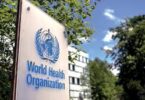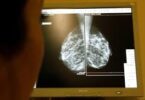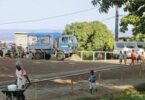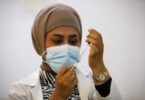Monitoring Desk
DOHA: The people who fast during the holy month of Ramadan have been urged to be aware of the warning signs of dehydration, heat exhaustion, and other forms of heat-related illness.
Dr. MuayadKassim Khalid, Senior Consultant, Emergency Medicine at Hamad Medical Corporation (HMC), said that while mild to moderate dehydration can normally be reversed by drinking more fluids, severe cases of dehydration and heat-related illness are medical emergencies and require immediate treatment.
“While thirst and exhaustion can be expected as a result of fasting during Ramadan, particularly when the Holy Month falls during the hot summer months, these conditions can become worse and lead to dehydration, heat exhaustion, and even heat stroke,” said Dr Khalid.
He said that the first signs of heat-related illness typically include skin redness and warmth, dizziness, nausea, vomiting, tiredness, muscles cramps, difficulty breathing, and a racing heart rate. He says if left untreated, heat cramps or heat exhaustion can lead to heat stroke, which is the most serious heat-related illness and can be fatal.
“During Ramadan, people abstain from drinking and eating for a long period of time and dehydration can occur. However, the risk of dehydration is heightened when you add factors that can increase water loss, such as exposure to hot weather and excessive sweating,” said Dr Khalid.
“Prolonged exposure to a hot environment and increased physical activity can then cause heat cramps and heat exhaustion and if those conditions continue, this can lead to heat stroke.
People with heat exhaustion will often not realise the severity of their condition and may just complain of discomfort and uneasiness. They may experience excessive sweating, a throbbing headache, and dizziness – all of which are a result of the body’s temperature rising rapidly and the sweating mechanism failing. Essentially, the body loses its ability to cool down.
Heat stroke can cause death or permanent disability if emergency medical treatment is not received,” said Dr. Khalid.
Individuals most at risk of dehydration and heat-related illnesses during Ramadan include those with chronic illnesses including diabetes and kidney diseases, those over the age of 65, patients with heart disease, and those taking multiple medications such as diuretics, which increase the production of urine.
Courtesy: (thepeninsulaqatar.com)






